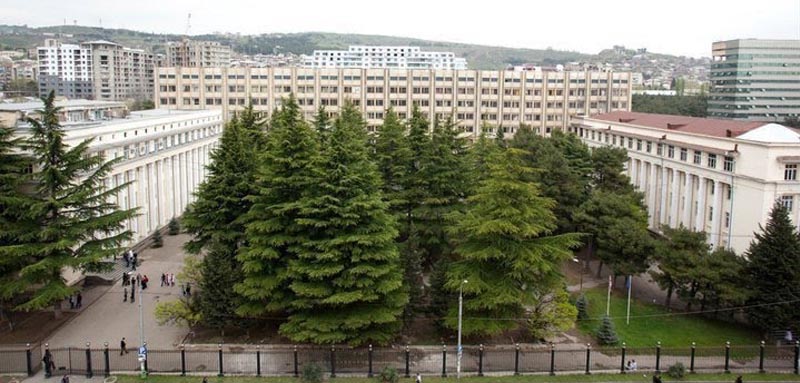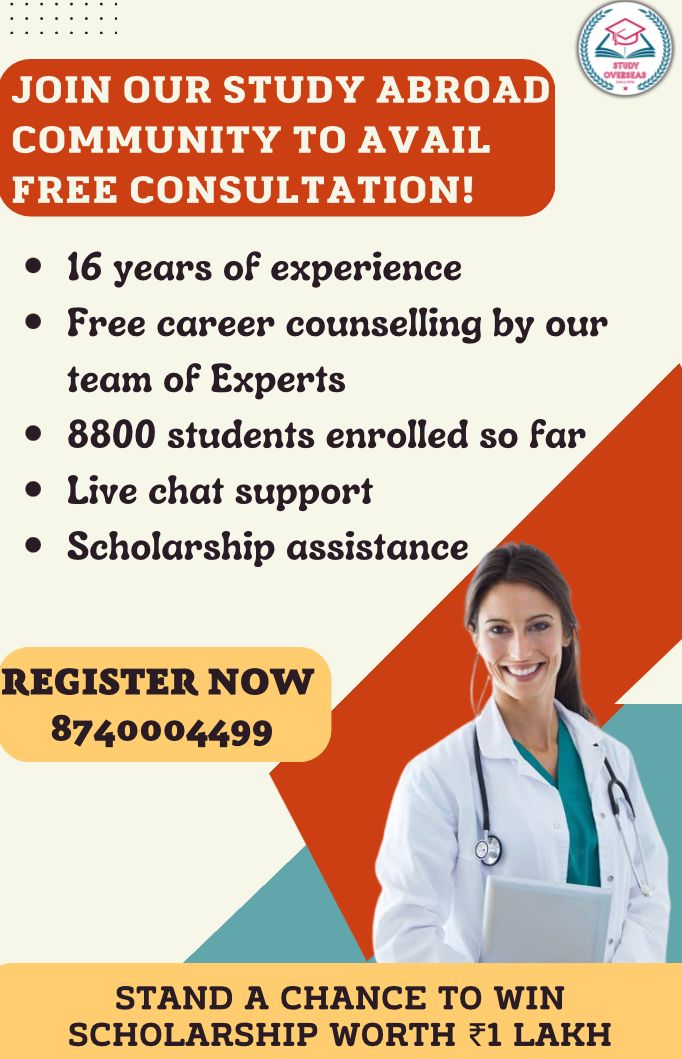
Tbilisi Medical State university: INTRODUCTION
Tbilisi State Medical University is a leading medical University in the Caucasus Region. TSMU was founded as Tbilisi Medical Institute in 1918 and became the Faculty of Medicine within the Tbilisi State University (TSU) in 1930. Tbilisi State Medical Institute was renamed to Medical University in 1992. Since that University operates as an independent educational institution.
TSMU became one of the high-ranking state-supported institutions of higher education in the whole Caucasus region. Currently, there are almost 5000 undergraduate and 203 postgraduate students at the University of whom 10% come from foreign countries.
History
The University was solemnly opened on the 8th of February, 1918 (old-style 26th of January), the day of remembrance of the Georgian King David the Builder. Since that, this day remains one of the most significant events in the history of the nation.
The founders of Georgian University well understand the importance of the introduction of Higher Medical Education. The primary initiator of the university foundation, the reverend Professor Ivane Javakhishvili, had been speaking about the reasons for the establishment of Medical Faculty "We still need to carry out research on the endemic flora and fauna in our country. Many human diseases have various characters and most are as yet unstudied. Consequently, scientific workers at our University's Medical and Natural Sciences Faculties have a broad challenge area".
The first Rector of University Professor Petre Melikishvili was an active supporter of medical faculty creation. On the meeting of "Georgian Physicians and Natural Sciences Society" (12th of October, 1917), he has expressed his opinion about the necessity of opening the medical and natural sciences faculty.
On February 27th, 1918, University Professors Faculty Council confirmed the exigency of the creation of the Medical Faculty. On June 17th, the same Council of Georgian doctors and Natural Scientists in the presence of Chairman Spiridon Virsaladze decided to open Mathematics-Natural Sciences and Medical faculty.
On June 10, 1930, the Tbilisi State University was reorganized and Tbilisi State Medical University was founded. This has become a powerful stimulus of development in Higher Medical Education and Medical Sciences in Georgia.
Tbilisi State Medical University at the foundation consisted of three faculties: Medical- Preventive (including Division of Stomatology), Sanitary- Preventive and Pharmacochemistry.
During the 80 years, the long history of the University in different periods of time was founded and functioning the following faculties: Pediatrics (since 1931), Stomatology (since 1936), Military Medicine (since 1993), Medical-Biology (since1994), psychosomatic medicine and Psychotherapy (since1996).
To date, Tbilisi State Medical University has five faculties: Medicine, Stomatology, Pharmacy, Public health, Physical medicine, and rehabilitation. Tbilisi State Medical University runs four Higher Education Programs: General Practice Nurse, Midwifery, Medical Devices Technician, and Pharmacy Technician.
The analysis of objective, sometimes revolutionary, political, and ideological changes in the country and Society that took place in the decades of the '90s of the last century, revealed that for the achievement of University goals the establishment of larger space is necessary. The newly acquired autonomy would have been merged with a new University structure that was the way for the transformation of Medical Institute into University and for that the preconditions already existed. The Author of this objective and the well-founded request was Tbilisi State Medical University itself.
24th of November 1992 is the historic day for Higher Medical Education in Georgia. The new stage was launched by the transformation of Tbilisi State Medical Institute into Tbilisi State Medical University.
Tbilisi State Medical University from the very beginning found itself at the forefront of overcoming the XXI century challenges of reforming medical education. In 1997 University has already developed a strategy of outcome-oriented teaching methodology implementation. The strategy has been developed on the bases of European expert's recommendations. After all, University is a member of the Association of Medical European Education (AMEE), also a member of the World Federation for Medical Education (WFME) and cofounder of the. East-European Association of Medical Education (EEAME). University is not only According to the above-mentioned experts modern, competitive International Medical education considers the following main points: Critical thinking, Information management, and Communicative skills. These are the basis for the development of basic sciences and public health, professional values, and relations.
By 2006, the necessity of implementation already existing Law on Higher Education of Georgia on the one hand, and the need of implementation full coverage of European and global advantages of medical education together with international commitments to reform the system of medical education on the other hand, have put the medical community to face the objective challenges.
The health care system with the old regulatory and financial mechanisms was poorly manageable. Accordingly, the traditional forms of training of qualified medical professionals required innovative changes. A three-stage system of higher education (baccalaureate, magistrate, and doctorate) called for coordination with the process of post-graduate education. All this would make it possible to implement harmoniously the "life-long learning principles", although it's clear that the creation of such a continuum requires appropriate material and human resources.
All the aforesaid have caused a very significant step in Georgia's system of higher medical education - in 2006 Tbilisi State Medical Academy was integrated into Tbilisi State Medical University. The merging of these traditional medical schools in TSMU as one Medical Institution united also undergraduate and postgraduate medical education facilitated multilateral development of traditional medical and entire natural sciences.
By 2007, the faculty of Therapeutic Physical Training and Rehabilitation of the State Academy of Physical Culture and Sport joined TSMU. This highly significant union was supplemented by competition for engagement in academic positions conducted in 2006 and 2007. As a result of the last competition, there are 371 academic personnel: full professors, associate professors, and assistant professors in TSMU. Besides them, 350 invited teachers are involved in the academic process.
Tbilisi State Medical University collaborates with more than 40 Universities and centers; international scientific cooperation instigated to launch of numerous joint projects of International or National significance.
On Completion Of Course
Once the course is completed, all the degrees, certificates received from universities in Armenia and Georgia are required to be apostilled with the Ministries of Education of these countries. This requirement is mandatory before submission in India to organizations like the Medical Council of India etc. for registration purposes. As India, Armenia and Georgia are signatory to the "Hague Convention" of Apostille, there is no requirement of attestation from Embassy of India, Yerevan of testimonials/certificates apostilled in Armenia and Georgia.
Tbilisi State Medical University (TSMU) is a full member of the following international organizations and associations:
- European Universities Association (EUA)
- Association of Medical Education of Europe (AMEE)
- European Association of International Education (EAIE)
- European Medical Students Association (EMSA)
TSMU closely collaborates with:
- WHO
- World Federation of Medical Education (WFME)
- UNESCO
- Educational Commission for Foreign Medical Graduates (ECFMG)
- Schweitzer World Academy (SWA)
Tbilisi State Medical University has undergone the Institutional Evaluation Programme, performed by the Association of European.
Foreign Students In Georgia
Georgia is a popular study destination with students from around the world wishing to gain a top-quality education. Each year more and more students take up courses in Georgia and add to the already significant international student body around the country.
University first and foremost holds its country's educational policy and it aims to achieve the highest European levels of educational standards. University has high certification programs, both for local and foreign citizens. The university has educational and scientific ties with leading European and Asian universities.
Georgia has a long history of welcoming international students to study in its universities and colleges. There are people at each university and college who are ready to answer your questions, help you through the application process and support you while you are in Georgia
Many universities and colleges organize a program of events before you start your course to welcome you and to help you make new friends and get used to your new surroundings.
Foreign Students In Georgia
Georgia is one of the most exciting and stimulating countries in the world. A mix of modern and traditional, Georgia has a history is a cultural and commercial country going back to thousands of years Georgia is our home nationalities, and the world's major languages are spoken here. Every religious, cultural, social, and political group is represented and the diversity of its people is one of Georgia's major strengths. It is well placed to offer excellent student support, teaching, and research Georgia also has a distinctive mission that continues the tradition of its well-established universities which has well-equipped facilities that are eminent abroad to achieve their full potential education for personal development and history.




